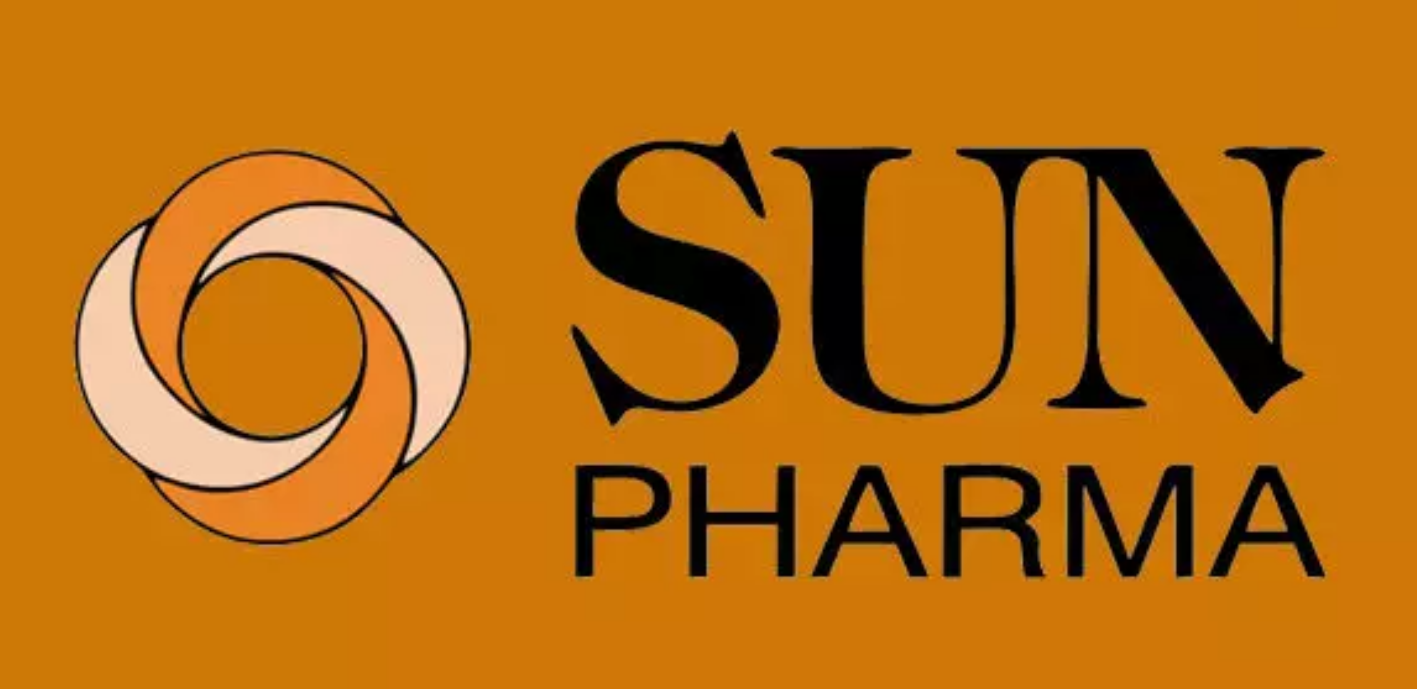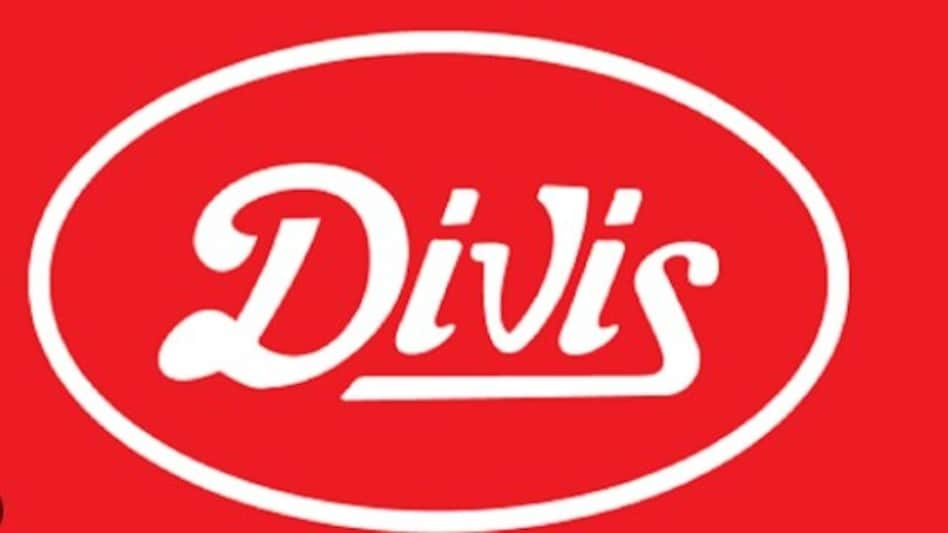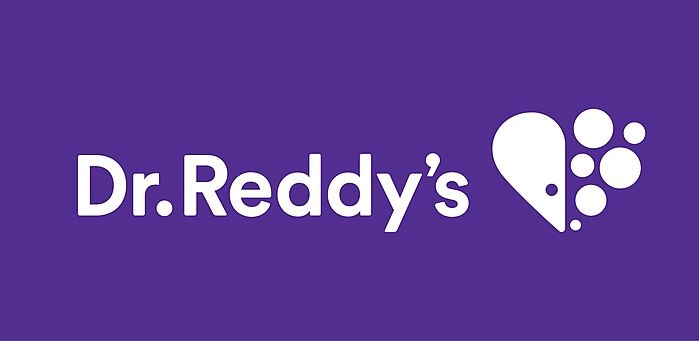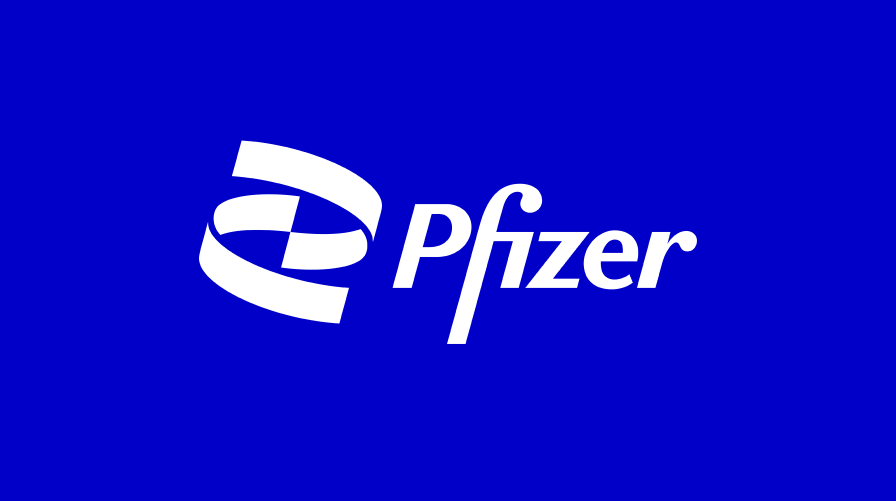Piramal Critical Care collaborates with Blue-Zone to launch innovative waste anaesthetic gas recycling initiative.
Piramal Critical Care, a leading provider of inhalation anaesthetics, has partnered with Blue-Zone Technologies, a pioneer in anaesthetic gas recycling, to launch a groundbreaking initiative aimed at reducing the environmental impact of waste anaesthetic gases. This...
Glenmark Pharmaceuticals sets sights on FY28 for debut of oncology drugs and expansion of profit margins, reports ETPharma.
Glenmark Pharmaceuticals, a leading Indian pharmaceutical company, has expressed confidence that its cancer drug, Trastuzumab Rezetecan (SHR-A1811), will enter licensed markets by FY28, driving an improvement in both gross and EBITDA margins. The company has guided...
HOSMAC has designed Cipla’s Breathefree Lung Wellness Centre in Mumbai, focusing on adaptive reuse and a wellness-centric approach, as reported by Prop News Time.
HOSMAC, a renowned healthcare design and consulting firm, has successfully designed Cipla's Breathefree Lung Wellness Centre in Mumbai. The centre is a testament to HOSMAC's expertise in creating healthcare facilities that prioritize patient-centric care and wellness....
S&P Global Upgrades Biocon Biologics’ Credit Rating to ‘BB+’ with a Stable Outlook, Reports IndiaMedToday
S&P Global Ratings has upgraded the long-term issuer credit rating of Biocon Biologics, a subsidiary of Biocon Limited, to 'BB+' from 'BB'. The rating agency has also maintained a stable outlook for the company. This upgrade is a testament to Biocon Biologics' strong...
Hyderabad to Witness ‘Global Voices, One Vision’ International Health Dialogue 2026, Hosted by Apollo Hospitals
The 13th edition of the International Health Dialogue (IHD) will be hosted by Apollo Hospitals in Hyderabad on January 30 and 31, 2026. The event will bring together global leaders to discuss patient safety, healthcare innovation, and system-wide transformation. The...
Sun Pharma receives green light for obesity treatment injection similar to Wegovy.
Sun Pharmaceutical Industries has received approval for a weight loss injection similar to Novo Nordisk's Wegovy. The new treatment, called "SUN-144", is a once-weekly injection that helps with weight management in adults with obesity or overweight with at least one...
Lupin achieves top ESG rating from CDP for its efforts in addressing climate change and water security.
Lupin, a global pharmaceutical leader, has been recognized for its exceptional sustainability efforts, receiving the highest "A" leadership rating from the Climate Disclosure Project (CDP) for both Climate Change and Water Security. This prestigious recognition...
Zydus Lifesciences introduces India’s first biosimilar version of Nivolumab, a global breakthrough.
Zydus Lifesciences, a leading life sciences company, has launched the world's first biosimilar of nivolumab in India under the brand name Tishtha. This milestone marks a significant expansion of patient access to cutting-edge cancer therapies, particularly in the...

Sun Pharma receives green light for obesity treatment injection similar to Wegovy.
Sun Pharmaceutical Industries has received approval for a weight loss injection similar to Novo Nordisk's Wegovy. The new treatment, called "SUN-144", is a once-weekly injection that helps with weight management in adults with obesity or overweight with at least one...
Several major Indian pharmaceutical companies, including Sun Pharma, Cipla, Zydus, and Graviti, have issued recalls for certain medications in the United States market.
Several major pharmaceutical companies, including Sun Pharma, Cipla, Zydus, and Graviti Pharmaceuticals, are recalling various products in the US due to manufacturing issues, according to recent US FDA enforcement reports. The recalls are primarily related to problems...
Sun Pharma receives DCGI approval for generic version of Wegovy, plans March release ahead of Semaglutide patent expiration.
Sun Pharmaceutical Industries has received approval from the Drugs Controller General of India (DCGI) to launch a generic version of Novo Nordisk's Wegovy, a medication used to treat obesity. The approval comes as the patent for the active ingredient, semaglutide, is...
Sun Pharma Sets Sights on $10 Billion Organon Takeover to Bolster US Presence
Sun Pharmaceutical Industries Ltd., India's largest drug manufacturer, is considering a monumental acquisition of Organon, a US-based company specializing in women's health and biosimilars. The potential deal, valued at $10 billion, is being led by the company's...
US Sales of Revlimid Decline, Offset by Strong Domestic Market Growth
The Indian pharmaceutical industry is bracing for a challenging earnings season in Q3, with expectations of muted margins due to the loss of patent exclusivity for the blockbuster blood cancer drug Revlimid in the US. Revlimid, which has generated over $100 billion in...
Sun Pharmaceutical Industries suffers loss in trademark dispute as Bombay High Court rules EsiRaft and Raciraft do not bear deceptive similarities.
The Bombay High Court has ruled in favor of Eris Lifesciences, dismissing Sun Pharmaceutical's claim that Eris's medication "EsiRaft" infringed on Sun Pharma's trademark for their medication "Raciraft". The court found that the names "EsiRaft" and "Raciraft" are not...
National Pharmaceutical Pricing Authority Caps Retail Price of Sun Pharma’s Gemcitabine Injections
The National Pharmaceutical Pricing Authority (NPPA) has set the retail price for Sun Pharma's Gemcitabine injections. Gemcitabine is a chemotherapy medication used to treat various types of cancer, including pancreatic, breast, ovarian, and non-small cell lung...
Bombay High Court Denies Sun Pharma’s Request for Temporary Restraining Order Against Competitor EsiRaft, Allowing it to Continue Challenging RACIRAFT
The Bombay High Court has refused to grant an interim injunction to Sun Pharmaceutical Industries Limited, allowing Meghmani Lifesciences Limited to continue using the trademark "EsiRaft" for its pharmaceutical product. The court found that the mark is not deceptively...

Gather to observe ‘National Road Safety Day’
A rally emphasizing the importance of road safety was held in Visakhapatnam, India, on Tuesday, with thousands of participants, including employees from Divi's company, traffic police officials, and local villagers. The event was flagged off by Muralikrishna Divi, the...
Will Indian pharmaceuticals’ domestic offerings provide a buffer against pricing pressures from the US market in the third quarter?
The Indian pharmaceutical industry is expected to have a mixed third quarter, with domestic formulations and specialty launches driving growth despite US pricing pressure. Companies like Sun Pharmaceuticals and Lupin are likely to lead the way, driven by their...
Jefferies names Sai Life and Divi’s Labs as top choices in the contract research and development manufacturing organization (CRDMO) sector, while reducing target prices for Piramal Pharma and Cohance.
Jefferies, a global investment bank, has released its latest report on the Contract Research and Development Manufacturing Organization (CRDMO) sector. The report highlights top picks and revises target prices for several key players in the industry. Sai Life Sciences...
Anand Rathi’s Siddharth Sedani reveals his top 4 stock picks – do they feature in your investment portfolio?
The Indian pharmaceutical sector is offering investors a chance to build a strong portfolio under the theme "Ayush Kart", as stated by Siddharth Sedani, Managing Director at Anand Rathi. The Indian pharma sector has been growing rapidly, and this trend is expected to...
The High Court has asked Novo Nordisk to respond to Natco’s request to cancel its patent.
The Delhi High Court has ordered Novo Nordisk, a Danish pharmaceutical company, to respond to a petition filed by Natco Pharma, a Hyderabad-based company, seeking to revoke the patent on the diabetes and anti-obesity drug semaglutide. The patent, which is set to...
Does Investing in NATCO Pharma (NSE:NATCOPHARM) Come with Significant Risks?
The article discusses the importance of considering debt when assessing a company's risk, as stated by Charlie Munger, a renowned investor. Li Lu, a fund manager backed by Berkshire Hathaway, emphasizes that the biggest investment risk is not price volatility, but the...
The Biosecure Act presents opportunities for growth and expansion in the Indian pharmaceutical industry.
The Biosecure Act has created new opportunities for the Indian pharmaceutical industry. The Act, which aims to regulate the use of biotechnology and ensure the safe handling of biological materials, has opened doors for Indian pharma companies to engage in the...
Natco Pharma’s credit rating has been reaffirmed with increased limits, highlighting its robust financial standing.
Natco Pharma, a prominent pharmaceutical company, has recently had its credit rating reaffirmed, accompanied by an enhancement of its credit limits. This development is a testament to the company's robust financial profile and its ability to maintain a strong fiscal...

Piramal Critical Care collaborates with Blue-Zone to launch innovative waste anaesthetic gas recycling initiative.
Piramal Critical Care, a leading provider of inhalation anaesthetics, has partnered with Blue-Zone Technologies, a pioneer in anaesthetic gas recycling, to launch a groundbreaking initiative aimed at reducing the environmental impact of waste anaesthetic gases. This...
Glenmark Pharmaceuticals sets sights on FY28 for debut of oncology drugs and expansion of profit margins, reports ETPharma.
Glenmark Pharmaceuticals, a leading Indian pharmaceutical company, has expressed confidence that its cancer drug, Trastuzumab Rezetecan (SHR-A1811), will enter licensed markets by FY28, driving an improvement in both gross and EBITDA margins. The company has guided...
HOSMAC has designed Cipla’s Breathefree Lung Wellness Centre in Mumbai, focusing on adaptive reuse and a wellness-centric approach, as reported by Prop News Time.
HOSMAC, a renowned healthcare design and consulting firm, has successfully designed Cipla's Breathefree Lung Wellness Centre in Mumbai. The centre is a testament to HOSMAC's expertise in creating healthcare facilities that prioritize patient-centric care and wellness....
S&P Global Upgrades Biocon Biologics’ Credit Rating to ‘BB+’ with a Stable Outlook, Reports IndiaMedToday
S&P Global Ratings has upgraded the long-term issuer credit rating of Biocon Biologics, a subsidiary of Biocon Limited, to 'BB+' from 'BB'. The rating agency has also maintained a stable outlook for the company. This upgrade is a testament to Biocon Biologics' strong...
Hyderabad to Witness ‘Global Voices, One Vision’ International Health Dialogue 2026, Hosted by Apollo Hospitals
The 13th edition of the International Health Dialogue (IHD) will be hosted by Apollo Hospitals in Hyderabad on January 30 and 31, 2026. The event will bring together global leaders to discuss patient safety, healthcare innovation, and system-wide transformation. The...
Sun Pharma receives green light for obesity treatment injection similar to Wegovy.
Sun Pharmaceutical Industries has received approval for a weight loss injection similar to Novo Nordisk's Wegovy. The new treatment, called "SUN-144", is a once-weekly injection that helps with weight management in adults with obesity or overweight with at least one...
Lupin achieves top ESG rating from CDP for its efforts in addressing climate change and water security.
Lupin, a global pharmaceutical leader, has been recognized for its exceptional sustainability efforts, receiving the highest "A" leadership rating from the Climate Disclosure Project (CDP) for both Climate Change and Water Security. This prestigious recognition...
Zydus Lifesciences introduces India’s first biosimilar version of Nivolumab, a global breakthrough.
Zydus Lifesciences, a leading life sciences company, has launched the world's first biosimilar of nivolumab in India under the brand name Tishtha. This milestone marks a significant expansion of patient access to cutting-edge cancer therapies, particularly in the...

HOSMAC has designed Cipla’s Breathefree Lung Wellness Centre in Mumbai, focusing on adaptive reuse and a wellness-centric approach, as reported by Prop News Time.
HOSMAC, a renowned healthcare design and consulting firm, has successfully designed Cipla's Breathefree Lung Wellness Centre in Mumbai. The centre is a testament to HOSMAC's expertise in creating healthcare facilities that prioritize patient-centric care and wellness....
Several major Indian pharmaceutical companies, including Sun Pharma, Cipla, Zydus, and Graviti, have issued recalls for certain medications in the United States market.
Several major pharmaceutical companies, including Sun Pharma, Cipla, Zydus, and Graviti Pharmaceuticals, are recalling various products in the US due to manufacturing issues, according to recent US FDA enforcement reports. The recalls are primarily related to problems...
Cipla Collaborates with ImmunoACT to Introduce CAR-T Cell Therapy for Blood Cancer Treatment in African Markets.
Cipla, a leading pharmaceutical company, has partnered with ImmunoACT, a biotech firm, to launch CAR-T cell therapy for the treatment of blood cancers in Africa. This collaboration aims to make this innovative and potentially life-saving treatment more accessible to...
US Sales of Revlimid Decline, Offset by Strong Domestic Market Growth
The Indian pharmaceutical industry is bracing for a challenging earnings season in Q3, with expectations of muted margins due to the loss of patent exclusivity for the blockbuster blood cancer drug Revlimid in the US. Revlimid, which has generated over $100 billion in...
Cipla collaborates with Stempeutics to introduce revolutionary stem cell treatment for osteoarthritis of the knee.
Cipla, a leading pharmaceutical company, has partnered with Stempeutics, a stem cell therapy company, to launch a stem cell-based treatment for knee osteoarthritis in India. This innovative therapy aims to provide relief to patients suffering from knee osteoarthritis,...
Cipla inaugurates a specialized lung health diagnostic facility in the nation’s capital, Delhi.
Cipla, a leading pharmaceutical company, has launched a dedicated lung health diagnostics centre in Delhi, India. This initiative is part of the company's efforts to reimagine Indian healthcare and provide comprehensive care to patients with respiratory diseases. The...
Cipla Inaugurates India’s Pioneer Comprehensive Lung Wellness Facility in Delhi
Cipla, a leading pharmaceutical company, has launched India's first fully integrated Breathefree Lung Wellness Center in Delhi. The center, located in Lajpat Nagar, offers a comprehensive range of services, including over 60 diagnostic tests, pulmonary rehabilitation,...
Indian pharmaceutical companies Cipla, Natco, Hetero, and Annora have secured major contracts to supply generic drugs to the Chinese market.
Cipla, Natco, Hetero, and Annora, four prominent Indian pharmaceutical companies, have secured significant contracts to supply generic drugs to China. This development marks a major breakthrough for Indian pharmaceutical companies in the Chinese market. The contracts...

Hyderabad to Witness ‘Global Voices, One Vision’ International Health Dialogue 2026, Hosted by Apollo Hospitals
The 13th edition of the International Health Dialogue (IHD) will be hosted by Apollo Hospitals in Hyderabad on January 30 and 31, 2026. The event will bring together global leaders to discuss patient safety, healthcare innovation, and system-wide transformation. The...
According to Apollo doctor, adopting three key lifestyle modifications can significantly safeguard cardiovascular well-being and reduce the risk of developing high blood pressure naturally.
High blood pressure, or hypertension, is a significant risk factor for cardiovascular disease, which is the leading cause of death worldwide. According to the World Health Organization (WHO), approximately 1.13 billion people globally suffer from hypertension, and...
Organs of Tiruppur road accident victim declared brain dead, donated to save multiple lives at Tiruchi hospital
A team of doctors at Apollo Speciality Hospitals in Tiruchi, India, successfully harvested organs from a 45-year-old brain-dead road accident victim, saving the lives of several patients in need of transplants. The woman, a resident of Kannivadi village in Tiruppur...
A 14-year-old patient suffering from sickle cell disease undergoes hip replacement surgery at Apollo Hospital.
A 14-year-old girl from Nigeria, Grace Natasha Mwanasa, has undergone a successful total hip replacement surgery at Indraprastha Apollo Hospital in New Delhi. The surgery, led by renowned orthopaedic surgeon Dr. Yash Gulati, is one of the youngest cases of total hip...
Apollo Hospitals Managing Director denies rumors of a family feud, citing the demerger as a deliberate business strategy.
Apollo Hospitals Enterprise is undergoing a significant restructuring process, spinning off its pharmacy and digital health businesses into a separate entity called Apollo HealthCo. Managing Director Suneeta Reddy has clarified that this decision is driven by a desire...
GCC will operate dialysis centers in Kolathur and Kondithope.
The Greater Chennai Corporation (GCC) will oversee and maintain two dialysis centers being constructed by the Chennai Metropolitan Development Authority (CMDA) in Kolathur and Kondithope. The centers will provide blood purification services, and the GCC has proposed...
Experts from Apollo, Aster CMI, and Fortis warn that snoring may be a warning sign of underlying heart issues, citing five key reasons.
Persistent, loud snoring is often dismissed as a harmless nighttime habit, but it can be a warning sign of obstructive sleep apnea (OSA), a condition that puts the heart under constant stress. According to leading medical experts, OSA can lead to high blood pressure,...
According to Apollo doctors, adopting this one simple habit can significantly lower the risk of premature heart attacks and increase lifespan.
Dr. Sudhir Kumar, a neurologist from Apollo Hospitals in Hyderabad, recently shared his personal experience of completing a half marathon after a 14-hour fasting window. Despite the distance, he maintained a comfortable pace and low heart rate, demonstrating the deep...

ABRYSVO Secures Enhanced Public Funding in Multiple Canadian Provinces for the 2025-2026 Respiratory Syncytial Virus Season
Pfizer Canada has announced that its vaccine, ABRYSVO, for the prevention of Respiratory Syncytial Virus (RSV), will be publicly funded in multiple provinces and territories across Canada for the 2025-2026 season. This decision reflects the growing recognition of the...
Pfizer’s Accord for a Healthier World initiative is redefining traditional stability study protocols.
Pfizer's Accord for a Healthier World program is a comprehensive initiative aimed at addressing healthcare disparities by providing the company's full portfolio of medicines and vaccines on a not-for-profit basis to 45 lower-income countries. However, many of these...
Experts from Apollo, Aster CMI, and Fortis warn that snoring may be a warning sign of underlying heart issues, citing five key reasons.
Persistent, loud snoring is often dismissed as a harmless nighttime habit, but it can be a warning sign of obstructive sleep apnea (OSA), a condition that puts the heart under constant stress. According to leading medical experts, OSA can lead to high blood pressure,...
The Supreme Court has issued a notice to Fortis Hospital and other parties in response to a petition seeking compensation for a brain injury.
The Supreme Court of India has issued a notice to Fortis Hospital in response to a plea filed by an 8-year-old child, Devarsh Jain, seeking compensation of Rs 1350 crore for an alleged brain injury at birth in 2017. The child, who is in a vegetative state, approached...